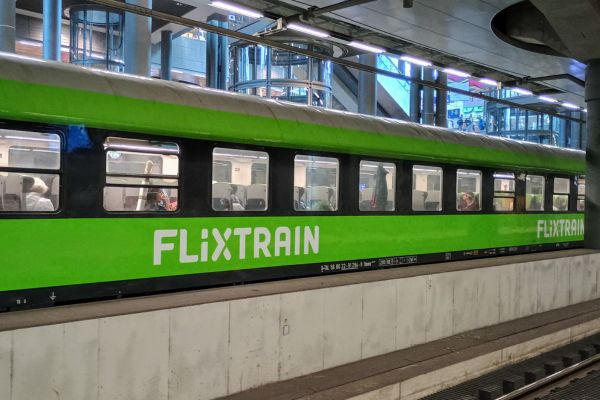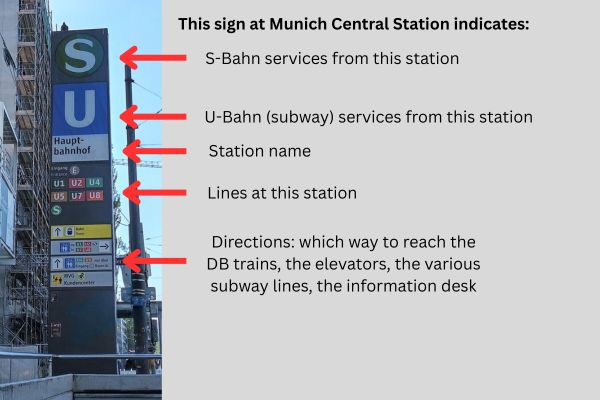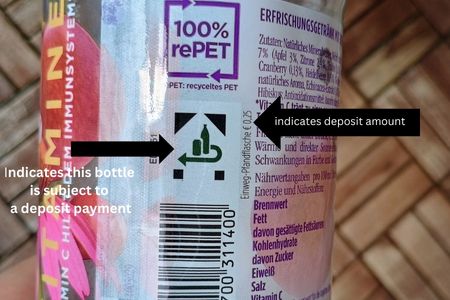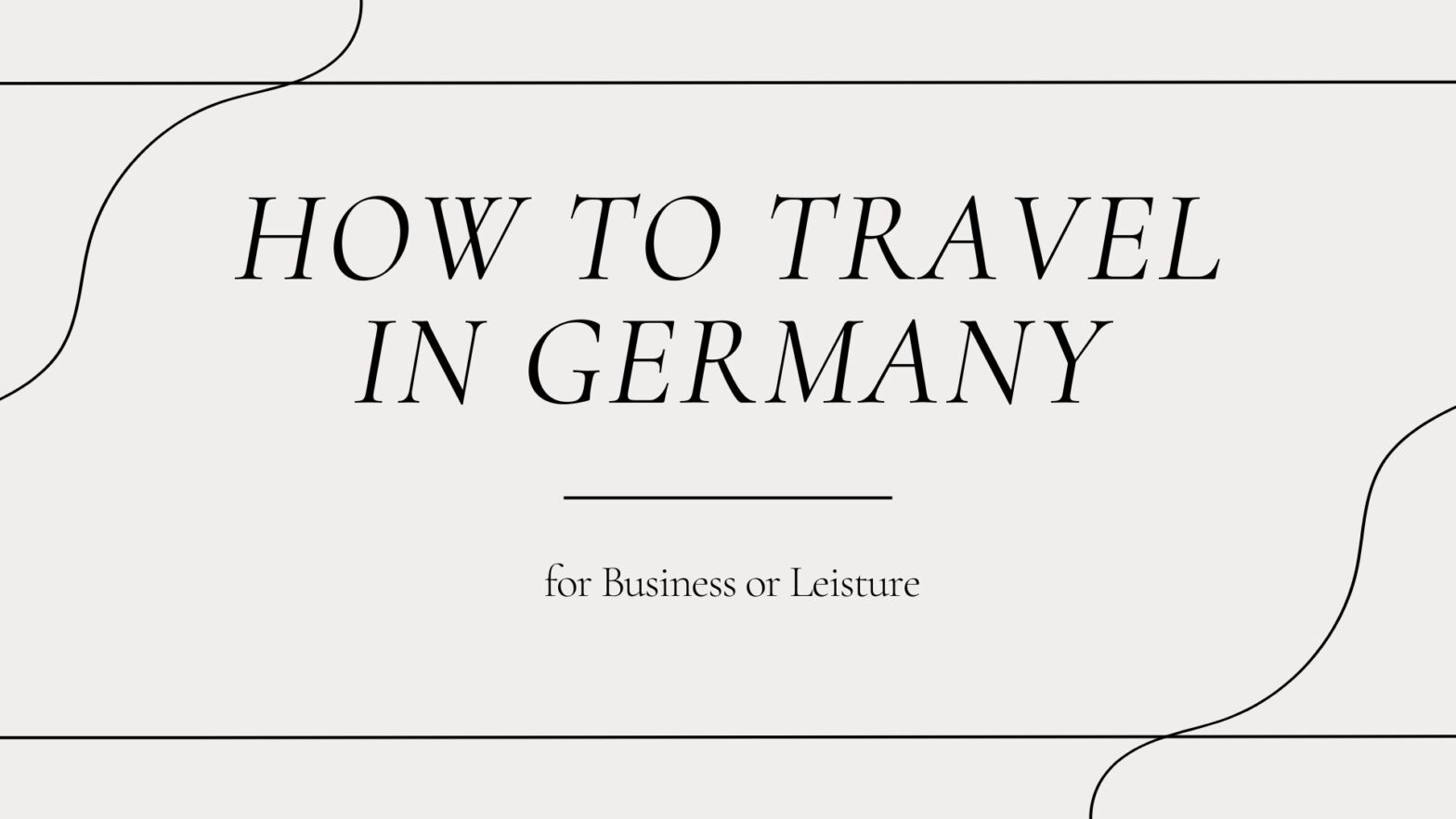Looking to travel in Germany? Have you got a trip to Germany coming up and are not quite sure how to tackle the logistics? How to get around, where to stay, where to eat, etc.? Look no further! This article presents a quick snapshot of the most important information.
Arrival & Entry Requirements
‼️Please note: This article does not constitute legal or official government advice. ‼️
To learn about entry requirements for Germany, please visit the website of the German Embassy in the country of your nationality. Do not blindly follow what a stranger claims in a blog post!
Do I Need a Visa for Germany?
I cannot answer that question. Please check the website of the German Embassy in the country of your nationality.
If you do need a visa, allow plenty of time for the application process. This may mean weeks, or even months. You will probably have to book an appointment to see a visa officer.
Germans very much believe in written documents. Make sure you have all the required documentation when submitting your visa application.
Schengen Visa
Always double-check official information and/or with a visa officer at the Embassy issuing your visa!
Germany is a party of the Schengen agreement. If you have a visa allowing you entry into one of the Schengen countries, you are free to travel to other Schengen countries within the validity of your visa.
Travel to and from the UK
Unlike Germany, the UK is no longer part of the European Union. It was never part of the Schengen agreement, either. This means that a UK entry visa does not entitle you to enter the EU, or vice versa! Worst case, you will need two separate visas.
Safety
Generally speaking, Germany is a very safe country. Period.
You will be perfectly fine even if you use public transportation and stay in budget accommodation. Lots of people do it every year.
Of course, there are certain things you might want to avoid. E.g., going to a seedy bar and waving around your expensive watch and wads of cash. Or getting deliriously drunk. Or following strangers to their homes. If you are staying in a dodgy neighborhood, check with reception staff about safety in the area.
Having said that, unfortunately it’s not totally safe for everyone everywhere. There are parts of the country where non-white people may be made to feel definitely unwelcome, and where, in the worst case, they may become victims of xenophobic violence. I would argue that these parts are off the tourist trail and you will probably only venture there if you are on business. In this case, check with your local contacts.
Safety for Women
Generally speaking, Germany is a very safe country. For women, too. Period.
It’s totally fine to use public transportation. It’s totally fine to visit a café or restaurant by yourself. I do it all the time, too.
Having said that, violence against women does of course happen in Germany, too. Take the usual precautions. Be aware of your surroundings and leave immediately if anything feels funny. Never tell anyone you are travelling on your own. Your husband, brother or father will be with you in a minute or two. You may want to wear a fake wedding band. If someone chats you up, it’s ok to ignore them or tell them (loudly) that you want to be left alone.
Also, don’t get crazy drunk, and don’t accept drinks from strangers. Be very careful when accepting open drinks from anyone other than the barkeeper, especially when you are alone. There are people who will spike your drink so you lose consciousness.
Emergency Numbers
Dial 110 for the police and 112 to call the fire brigade or an ambulance.
Domestic Travel in Germany
You have several options when travelling around Germany. Let’s be clear: You do not have to take flights to travel between cities. Train and bus travel are perfectly safe, and much more environmentally-friendly.
Rental Car
There are several international car-rental companies in Germany, such as Sixt, Hertz, Europcar, Avis, Budget. These may be a good choice if you are looking for a one-way rental, e.g., you pick up the car in Frankfurt and drop it off in Munich.
In addition, there are smaller local players. These will typically not have offices across the country, so you will have to pick up and drop off your rental at the same office.
To find the best offer, you may wish to use a price-comparison site such as rentalcars.com.
Depending on what you are used to, prepare for crowded and narrow roads, lots of construction sites, and not a lot of free parking. The famed German Autobahns may not have a speed limit, but traffic will often be slow.
Trains
Germany has a fairly dense network of local, regional and long-distance trains. The national operator is Deutsche Bahn (DB). Their website is available in multiple languages. They also have a very good app called DB Navigator that lets you search for trips, book tickets and manage bookings. It often works for international routes, too. In 2024, I booked my Barcelona-Paris ticket on the DB Navigator app because I was getting nowhere with the Spanish and French train operator websites.
Is DB notoriously unreliable? Yes. Do trips at times unexpectedly turn into journeys from hell? Yes. Can tickets be ridiculously expensive? Yes. Is the competition any better? Not necessarily.
Individual routes are operated by private train companies such as Bayerische Regio Bahn, National Express, or Arverio. These are typically integrated into the DB network, meaning you can use your DB ticket to ride these trains. Other operators, however, such as Flixtrain or Westbahn, have their own fare structures and do not accept any type of DB ticket.

For nighttime travel, especially long-distance, there are regular trains running on night schedules as well as night trains. The latter are often operated by Austrian train operator ÖBB Nightjet. The difference between the two? Regular trains are just that – regular trains. Seats only, lights will be on all night. „Real“ night trains offer seats, bunks and sleeper options. Especially the latest-generation Nightjet trains are pretty luxurious and comfortable. Tickets may be significantly more expensive than on regular trains.
As anywhere, watch your valuables. Thieves and pickpockets do operate in and around train stations and on trains.
Two more excellent resources for train travel:
- The Man in Seat 61 has loads of information not only about Germany, but other countries in Europe and the rest of the world. This includes international train travel.
- The Trainline lets you search for connections and offers booking services for a small fee.
Long-Distance Buses
Long-distance buses mainly operate within the Flixbus network.
Buses typically connect cities only, so if you are headed to a smaller town, you may have to travel onward by train or local bus. Travel times may be longer than on trains.
Domestic Flights
Domestic flights in Germany are operated by Lufthansa and its subsidiaries. Tickets are typically expensive. Personally, I don’t see the point in flying, especially on short routes, unless it’s a direct connection from/to an international flight. Flying between Munich and Hamburg is a little faster than taking the train, but that’s about it. If you factor in the time needed to get to the airport, processing times at the airport itself, and time needed to get from your destination airport into the center, trains are pretty much as quick.
But isn’t DB so unreliable? Yes. But how many flight delays have you experienced?
If you choose to fly, here is how you get to and from central Munich using the S-Bahn or the Lufthansa Airport Express Bus.
Local Public Transportation
In most urban areas, Germany has very good local public transportation. Networks may offer one or several of the following modes of transportation:
- Suburban rail (S-Bahn): these connect cities and outlying communities. They typically run on intervals ranging from 10 minutes to one hour. They usually run aboveground, except in cities (for reasons of space). In many cities, you will catch an S-Bahn to travel to and from the airport.
- Underground/subway trains (U-Bahn): operating mostly below ground and usually only within the city borders, they stop more frequently than S-Bahns.
- Buses: running along fixed routes and schedules, buses are also used as replacement rail services when lines are closed due to construction.
- Trams: once on the verge of being extinct, these are now making a comeback. As trams run above ground on rails, their route is fixed, which makes it easy for visitors to locate stops.

One peculiarity to note is that U-Bahns, buses and trams are usually operated by the municipal transport authority, while the S-Bahns have traditionally been operated by DB. This shows quite starkly in Berlin, where there are often no direct interchanges between U-Bahn and S-Bahn. You have to exit one station, walk a few meters, and enter another station to make your transfer. However, you don’t have to buy separate tickets!
Tickets for Public Transportation
Each municipal authority sets its own fares and issues its own tickets. Tickets are non-transferable between municipalities. A ticket you buy in Berlin can only be used in Berlin.
Sometimes, multiple municipalities form a „Verkehrsverbund“ to offer a unified fare structure and tickets. One such example is VRR, which covers a huge area, extending even into the Netherlands for a little bit.
This comes with a host of questions, such as, where to buy tickets, how to buy them, how to validate them etc. It is impossible to answer these questions uniformly. You will have to check the rules in each municipality that you visit.
Most transport authorities now have apps and let you purchase tickets online. However, that means you have to figure out which authority is covering where you currently are. 😉 If you are travelling around Germany, it means you will have to download multiple apps and open multiple user accounts, only to delete them again after a few days.
Ticket Types
Generally speaking, the following ticket types are usually on offer:
- Single-trip tickets, usually a tiered system with prices that vary by distance travelled,
- Multi-trip tickets, typically four trips of the same cost covered on one (paper) ticket,
- Day tickets, for one day or multiple consecutive days, for individuals or groups of people travelling together. These usually work out cheaper once you take three or four rides per day.
Deutschland-Ticket
The „Germany Ticket“ was introduced in 2023 and was completely revolutionary. With a monthly payment of originally €49 and currently €63, ticket holders can use all local public transportation as well as local and regional trains in all of Germany (excluding certain carriers such as Flixbus or Westbahn). Technically, the ticket validity is limited to participating transport authorities, but hey, who wouldn’t participate? You can even use it on Munich’s Lufthansa Airport Bus!
This marvel of a ticket is completely worth it, if only for the time it saves you trying to figure out how the ticket machine is working, which ticket you should buy etc.
So what’s the problem? Strictly speaking, the Germany Ticket is only for residents. But there is a workaround. Check this link on Seat 61 and scroll up a bit to get to the booking information for the Germany Ticket.
If you do manage to buy a Deutschland Ticket, note that you will have it in an app on your phone. You may therefore need data to load your ticket if there is a ticket inspection.
Accommodation Options in Germany
Germany has a wide variety of accommodation options, ranging from basic hostels and privately-owned guest houses to international luxury hotels. Airbnb-style short-term rentals are also on the rise.
Generally speaking, Germany is a safe country. You do not have to choose between staying in a 5* hotel and facing certain death.
Budget Hotels
A number of budget hotel chains operate in Germany. Among the best known are Motel One, Premier Inn, B&B Hotels and Ibis (as well as other brands operated by the Accor group). These may offer varying levels of „nice“, but all have clean and comfortable rooms at a decent price. And they are safe.
„Best Area to Stay in ___?“
It’s never possible to give a general answer to the question of what is the best area to stay in a given place. It depends on what the purpose of your stay is. For instance, if you are visiting a trade show, you might choose a completely different area than if you are visiting for leisure.
My suggestion: using the map app of your choice, determine where in town you physically want to spend most of your time. Start with hotels in the vicinity. If there are none, or they are too expensive, expand your search area, with an eye on how easy it is to get to your destination. A cheaper hotel that looks quite far away might actually be a great choice, if a direct S-Bahn connection takes you where you want to be in just 15 minutes.
„Worst Area to Stay in ___?“
The area directly surrounding the train station usually has lots of affordable accommodation options. It is also often not the best part of town. This is especially true in big cities, Frankfurt being a particularly awful example (speaking from personal experience).
Then again, the train station area is often one of the most colourful neighbourhoods. Typically, it has some of the most interesting (or at least cheap) food in town.
Where to Find & Book a Hotel
The main booking engines in Germany (and Europe) currently seem to be booking.com and hrs.de. Both offer hotel reviews by people who have actually stayed at the property. You can also check reviews on sites such as Google or TripAdvisor.
Airbnb is also operating in Germany. As elsewhere, short-term rentals are keeping properties off the local rental market, however, so some cities are implementing restrictions. Many apartments are now advertised on both Airbnb and booking.com, so you may want to compare prices.
Note: You might find a better room rate and/or additional rooms available if you check a hotel website directly..
Where and What to Eat in Germany?
Traditionally, German cuisine centers around meat (often pork) and potatoes. You will find anything from cheap fast-food joints (typically called „Imbiss“) to Michelin-starred restaurants.
There is no „typical“ German cuisine or „typical“ German dish, apart from perhaps Currywurst: a fried sausage covered with ketchup and curry powder. Instead, there are lots of regional cuisines and local specialities. Go for the type of local cuisine that is truly local. One of the worst meals I’ve ever had was at a Bavarian restaurant in Saxony – totally different cuisines, mentalities, everything.
Check my list of Munich cheap eats here.
Special Dietary Requirements & Allergies
Eating out has become much easier over the past few years for people with special dietary requirements, though things may still be pretty challenging outside urban areas. Do not expect every food outlet to be able to cater to your every need. Most small bakeries will not have gluten-free bread, for example.
Vegetarian and even vegan food options have become a lot more available. Expect the occasional funny look, especially in rural areas.
Halal meat is usually available only at restaurants with cuisine from the Muslim world. These will be doner kebab shops, but often also Indian restaurants (which are frequently operated by Bangladeshis or Pakistanis).
Kosher food is typically only available in Jewish restaurants.
If you have an actual allergy, you will find that some Germans will not take you seriously. There still seems to be a widespread belief that food allergies are a choice and a few nuts can’t possible kill anyone. Thus, you may have to be very clear about the possible consequences of eating certain foods for you.

Ethnic Cuisines
From grubby doner kebab shops to stylish Japanese ramen bars, Germany now has lots of ethnic food options. Cheaper places tend to congregate in and around the train station area.
Money in Germany
Germany’s official (and only) currency in the Euro. Other currencies are not accepted.
Cash or Card?
Germany is still very much a cash-based society. Though more and more places are accepting card payments, many will still have signs by the door: „Nur Barzahlung“ – Cash only. Others will accept card payments from €10 only, or restrict card payments to „EC-Karte“, i.e., no debit/credit cards.
It makes sense to carry at least a little bit of cash for small purchases, tips, etc.
If you are going on a free walking tour, make sure to carry cash. Your guide most likely will not be able to accept card payments, though they may have a PayPal account. (Venmo isn’t really a thing here.) You can tip them in USD or GBP, but they won’t be too happy about it (unless they are planning a trip to the US or UK).
Taxes Included
Generally speaking, all purchases in Germany come with 7 % or 19 % VAT (depending on the product). Tax is always included in the price. If the price tag says €7.99, you will pay €7.99.
Pfand
You grab a bottle of water at the supermarket for 99 cents, but the cashier insists you pay €1.24? That’s not a rip-off, that’s Pfand.
„Pfand“ means „deposit“. It is levied mostly on beverage packaging and ranges from 8 to 25 cents per container. If you return the can or bottle (by feeding it into a „Leergutautomat“ that issues you with a „Pfandbon“), you will get your money back at the check-out.

If you can’t be bothered to return your empties, leave them next to a trash can. There are people who collect and return empties to supplement their income.
You will also have to pay Pfand, typically around €2, per glass at beergardens, Christmas markets or street festivals.
Tipping in Germany
As anywhere, wages in the hospitality sector are not great. However, unlike in North America, for instance, waiters do not depend on tips to make a living. There is no obligation to tip, but it is appreciated. If you do tip, 10 % is sufficient. Feel free to give less if the service wasn’t that great.
Some restaurants will indicate on their bills that „Tip is not included“. While that is technically correct, I find it misleading. It implies that service staff will go unpaid unless patrons tip, which is not true.
When paying by card, a growing number of card terminals offer an option of adding 10, 12.5 or even 15 % tip to your payment. This is completely ridiculous, especially if you are at a coffee shop. Choose „no tip“ and put some small change into the tip box instead, if you wish.
Anything Else?
Let me know in the comments what other travel advice for Germany you are looking for!

2 Kommentare